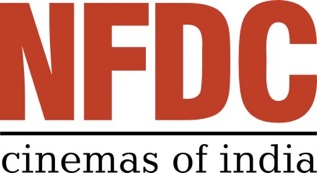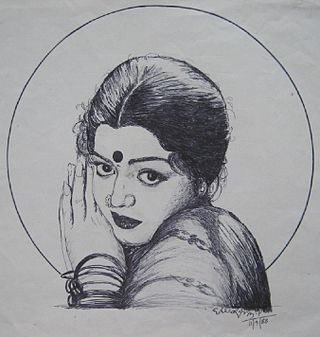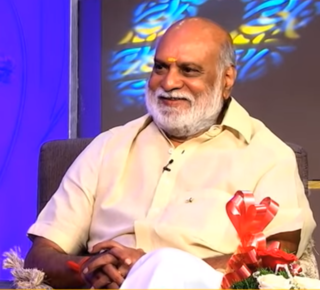Related Research Articles

Kasinadhuni Viswanath is an Indian film director, screenwriter and actor, known for his works primarily in Telugu cinema. He is recipient of five National Film Awards, seven state Nandi Awards, ten Filmfare Awards South, and a Filmfare Award in Hindi. He was honored with the "Prize of the Public" at the "Besançon Film Festival of France" in 1981. In 1992, he received the Andhra Pradesh state Raghupathi Venkaiah Award, and the civilian honor Padma Shri for his contribution to the field of arts. In 2017, he was conferred with the Dadasaheb Phalke Award, the highest award in Indian cinema.

Penmetsa Ram Gopal Varma, often referred to by his initials RGV, is an Indian film director, screenwriter and producer, known for his works in Telugu cinema in addition to Hindi, Kannada language films, and television. Varma has directed films across multiple genres, including parallel cinema and docudrama noted for their gritty realism, technical finesse, and craft. Regarded as one of the pioneers of new age Indian cinema, he was featured in the BBC World series Bollywood Bosses in 2004. In 2006, Grady Hendrix of Film Comment, published by the Film Society of Lincoln Center cited Varma as "Bombay's Most Successful Maverick" for his works on experimental films.

The National Film Development Corporation of India (NFDC) based in Mumbai is the central agency established in 1975, to encourage high quality Indian cinema. It functions in areas of film financing, production and distribution and under Ministry of Information and Broadcasting, Government of India. The primary goal of the NFDC is to plan, promote and organise an integrated and efficient development of the Indian Film Industry and foster excellence in cinema.

Bhanupriya is an Indian actress, Kuchipudi dancer, and voice artist. In a career spanning over 4 decades, Bhanupriya has appeared in 155 feature films- predominantly in Telugu & Tamil, in addition to occasional performances in Malayalam, Kannada and Hindi films as well. She has started in a variety of roles, ranging from slapstick comedy-to-epic dramas. She has garnered three state Nandi Awards, two Tamil Nadu State Film Awards, two Filmfare Awards South and two Cinema Express Awards.

Telugu cinema, also known as Tollywood, is the segment of Indian cinema dedicated to the production of motion pictures in Telugu language, widely spoken in the states of Andhra Pradesh and Telangana. Telugu cinema is based in Film Nagar, Hyderabad, India. The nickname Tollywood is a portmanteau of the words Telugu and Hollywood. By 2021, it has emerged as the largest film industry in India in terms of box-office.
The National Film Award for Best Feature Film in Telugu is one of the National Film Awards presented annually by the Directorate of Film Festivals, the organisation set up by Ministry of Information and Broadcasting, India. It is one of several awards presented for feature films and awarded with Rajat Kamal.

Kovelamudi Raghavendra Rao is an Indian film director, screenwriter, and producer known for his works predominantly in Telugu cinema besides having directed a few Hindi films. He has garnered four state Nandi Awards and five Filmfare Awards South. In a film career spanning more than four decades, Rao has directed more than a hundred feature films across multiple genres such as romantic comedy, fantasy, melodrama, action thriller, biographical and romance films.

Nagulapati Srinivasa Chakravarthy, known professionally as J. D. Chakravarthy, is an Indian actor, screenwriter, director, producer, composer, and singer known for his work primarily with Telugu cinema in addition to Hindi, Tamil, Malayalam, and Kannada films. Chakravarthy made his screen debut with the Telugu film, Siva, an action blockbuster directed by Ram Gopal Varma, featured at the 12th IFFI. He subsequently made his Bollywood debut with the remake of the same film titled Shiva (1990). He then starred in the blockbuster Satya, featured in the Indian panorama section at the 29th IFFI, and was listed among CNN-IBN's 100 greatest Indian films of all time. Chakravarthy received the Screen Award Special Jury Award.

Bongu Narsing Rao is an Indian film director, screenwriter, littérateur, composer, poet, producer, actor and painter known for his works in Telugu cinema, and Telugu theatre. Rao has garnered five National Film Awards, three Nandi Awards, various international honors, and has served as a jury in various Asian film festivals. He directed, Daasi "(Bonded Woman)" and Matti Manushulu "(Mud People)" which won the Diploma of Merit awards at the 16th and 17th Moscow International Film Festivals in 1989 and 1991 respectively.

The International Film Festival of India (IFFI), founded in 1952, is one of the most significant film festivals in Asia. Held annually, currently in the state of Goa, on the western coast of the country, the festival aims at providing a common platform for the cinemas of the world to project the excellence of the film art; contributing to the understanding and appreciation of film cultures of different nations in the context of their social and cultural ethos, and promoting friendship and cooperation among people of the world. The festival is conducted jointly by the National Film Development Corporation of India and the state Government of Goa.

Kanaala Nanjunda Tirumala Sastry was an Indian film critic, screenwriter, director, littérateur, and producer, known for his works predominantly in Telugu cinema. He has garnered six National Film Awards, three Nandi Awards and three International honors.

The 59th National Film Awards, presented by the Directorate of Film Festivals, honoured the best of Indian cinema for 2011 and took place on 3 May 2012 at Vigyan Bhavan, New Delhi. Awards were presented in 38 categories in the Feature Films section, 20 categories in the Non-Feature Films section and two categories for the Best Writing on Cinema section; 41 jury members chose the winners from 392 entries. The ceremony was hosted by actors Vinay Pathak and Saumya Tandon. Awards were presented by the Vice-President of India, Mohammad Hamid Ansari. The ceremony was broadcast live on three television channels, eleven All India Radio stations, and webcast live.
Thiladaanam is a 2000 Indian Telugu-language drama film, written, and directed by film-critic K. N. T. Sastry in his debut directorial, based on the story by Rentala Nageswara Rao. The film features H. G. Dattatreya, Brahmaji, Tanikella Bharani, and Jaya Seal in pivotal roles.
The 61st National Film Awards ceremony was an event during which the Directorate of Film Festivals of India presented its annual National Film Awards to honour the best films of 2013 in the Indian cinema. The ceremony was held on 3 May 2014.
Talasila Kranthi Kumar was an Indian film director, producer, and screenwriter known for his works predominantly in Telugu cinema. He won two Filmfare Awards and four Nandi Awards. In 1985, he directed Sravanthi, which won the National Film Award for Best Feature Film in Telugu that year. In 1991, he directed Seetharamayya Gari Manavaralu, which was premiered in the Indian panorama section, at the 1991 International Film Festival of India.
The 24th International Film Festival of India was held during 10-20 January 1993 at New Delhi.
The 25th International Film Festival of India was held during 10-20 January 1994 at Kolkata.
The 13th International Film Festival of India was held as IFFI' 90 during 10–20 January 1990 at the Empire Theatre in Kolkata. The festival was made interim non-competitive following a decision taken in August 1988 by the Ministry of Information and Broadcasting. The "Filmotsavs" and IFFI 90-91-92 together constituted 23 editions of the festival
The 14th International Film Festival of India was held as IFFI' 91 during 10–20 January 1991 at Chennai. The festival was made interim non-competitive following a decision taken in August 1988 by the Ministry of Information and Broadcasting. The "Filmotsavs" and IFFI 90-91-92 together constituted 23 editions of the festival
The 15th International Film Festival of India was held as IFFI' 92 during 10–20 January 1992 at Bengaluru.
References
- ↑ "Directorate of Film Festival" (PDF). April 3, 2014. Archived from the original (PDF) on 2014-04-03.
- ↑ Chinnarayana, Pulagam (August 2007). A natural frustration in the history of celluloid. Telugu Naadi (in Telugu). United States. p. 54. ISSN 1559-7008. Archived from the original on 31 May 2016. Retrieved 9 April 2016.
- ↑ "26th International film festival of India, 1995" – via pib.
- ↑ "1995 - 26th International Film Festival Of India" – via www.youtube.com.
- ↑ "IFFI '95: Cliched themes of poverty and tragedy leave Indian cinema stagnant and tired". India Today.
- ↑ "Directorate of Film Festival" (PDF). Archived from the original (PDF) on 2017-12-31. Retrieved 2018-01-11.
- ↑ "International Film Festival in India". rrtd.nic.in. Archived from the original on 21 November 2004. Retrieved 31 March 2020.
- ↑ Dirks, Nicholas B. (September 27, 1995). "Bombay: The 26th International Film Festival of India: January 10–20, 1995". Visual Anthropology Review. 11 (2): 51–53. doi:10.1525/var.1995.11.2.51.